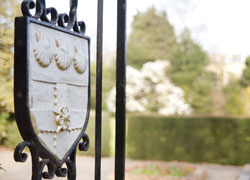University investments to be fossil fuel free
Tuesday, 04 February 2020

The University is selling all its remaining investments in fossil fuels and putting its money behind green schemes. The decision means our investment portfolio will be fully divested from all fossil fuel companies within months, following the appointment of fund manager Cazenove Capital. The new fund manager, part of Schroders, has been selected to look after our £120million portfolio of shares and bonds after a competitive re-tendering process. Cazenove Capital was selected following a commitment by the University to decarbonise its investment portfolio. The proposed changes to become fossil fuel-free will be completed within three months.
With the support of the Reading University Students’ Union (RUSU), the tender process allowed us to respond to the concerns of students, colleagues and other stakeholders. The decision was reached after giving a significant weighting to ethical, social and governance issues in the choice of a new manager.
In particular, given our world-leading research into climate change and sustainability, an investment manager was sought with a credible and proven track record in helping UK universities in fully divesting from fossil fuel companies.
In addition, our investments will exclude any holdings in companies producing armaments, tobacco or pornography.
Vice-Chancellor Professor Robert Van de Noort said:
“We are very pleased to deliver on our pledge to remove our investments from fossil fuel companies. In fact, we are going further than the original pledge, and are now committing not to have any direct or indirect holdings in fossil fuel companies.
“As an institution, we are a world leader in environmental research and have already made great strides to reduce our carbon emissions and to support environmental sustainability. After a rigorous appointments process, we are confident that our new fund manager has the capability to align our investments with our mission to understand and fight climate change.
“We are pleased that Cazenove’s parent company Schroders has committed to be carbon neutral from 2020 and to use 100% renewable energy by 2025, further demonstrating its commitment to protecting our planet.”
With the new partnership with Cazenove Capital, our endowments will be managed on a fossil fuel-free, low carbon basis. The new approach has three key characteristics:
- Lowering carbon emissions - the proposed equity portfolio has 80% less carbon emissions than the world index; a reduction in emissions equivalent to planting over 200,000 trees per year
- Engaging with companies to encourage the transition to a lower carbon future – using the influence of a large global asset manager
- Investing in solutions to meet environmental need, such as renewable energy and infrastructure.
The appointment of a new fund manager followed a rigorous process in which candidates had to demonstrate the very highest levels of socially responsible investing, as well as show a profitable, innovative, and sustainable approach to stewarding the University’s long-term endowment assets. The University undertook extensive interviews of the shortlisted firms, with the invaluable help and guidance of RUSU.
The announcement is part our aim to be one of the world’s leading universities for climate action. The University is already one of the leading centres for climate science, with the most number of authors in Group One in the UN’s Intergovernmental Panel on Climate Change of any university. It also hosts the Walker Institute for climate resilience societies and Reading Centre for Climate and Justice.
In July 2019 we reached another milestone in reducing its environmental impacts, hitting a 40% reduction target in its carbon footprint since 2008/09. Its next target towards carbon zero is a 45% energy reduction target by 2021.
Dan Fernbank, Energy and Sustainability Manager, said:
“Our students, staff and local community expect us to demonstrate environmental leadership, and sustainability is at the heart of what we do.
“There is always more work to be done, and we will continue to run a strong sustainability programme to deliver lasting change. We are committed to embracing new and innovative ways to help the University minimise its carbon footprint.”
